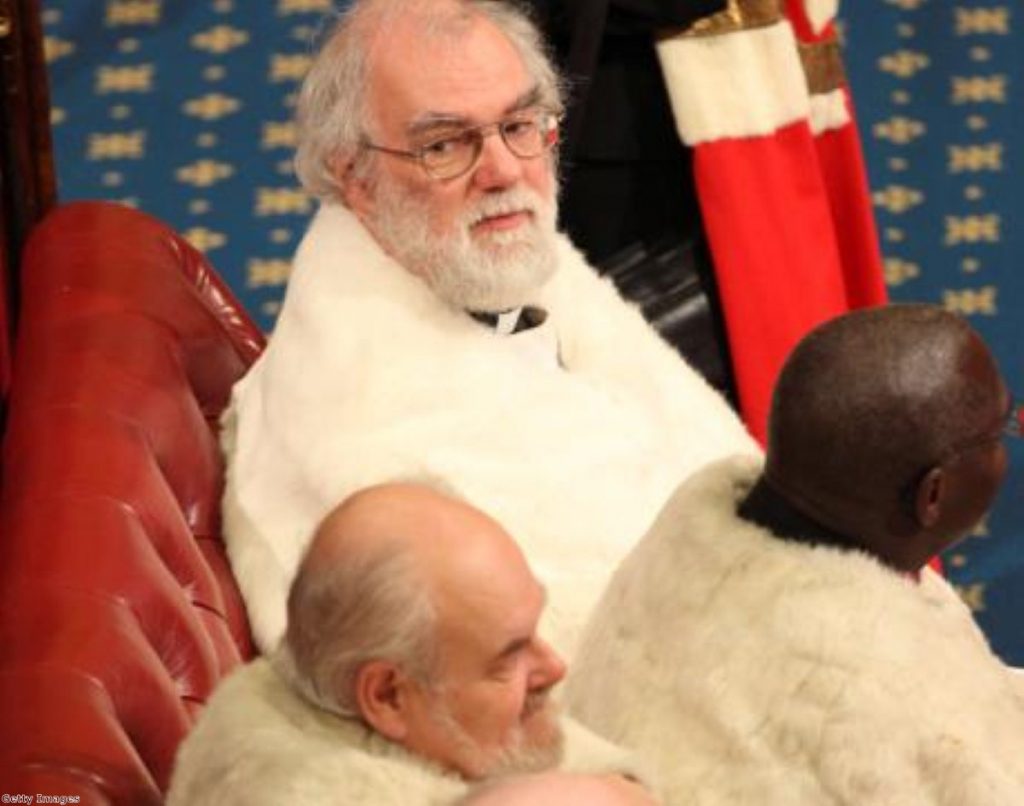Bishops in the Lords survive, but their privileges could be on the line
The bishops may be set to survive the coalition's Lords reforms, but important questions remain to be resolved about their role in the Lords.
Whether or not the coalition's Lords reform proposals go through, the bishops' unelected place in parliament now appears all but certain.
The government was already minded to retain the Church of England's representation in the reformed second chamber. Constitutional reform minister Mark Harper told me in January: "Our starting position is we felt it was appropriate for the established church in England to continue to have a presence, and we'll look at what the joint committee say about that."
The joint committee he referred to is, of course, the group of MPs and peers who have spent the last few months scrutinising the government's Lords reform proposals. It is set to publish its report on April 23rd, several weeks later than planned. But, as the BBC reports, its decision on the bishops has already been made. It will reportedly back the coalition's suggestion that the number of bishops be reduced from 26 to 12 (actually increasing, in proportion, their representation, given the broader shrinking of the size of the Lords).


This has, unsurprisingly, enraged the secularists. They point out that Britain is the only country in the world which gives religious representatives the right to sit in its legislature. They are far from representative, all being middle-class white men. Worst of all, it's alleged, they use their Establishment status to shield themselves.
Hence Keith Porteous Wood, executive director of the National Secular Society, argues: "In many instances they have conspired to protect the interests of their own Church using their privileged position in parliament to do it."
Defenders of the Church will point to the bishops' role in the welfare reform bill, when they led a rebellion against the government's proposals to cap benefits at £26,000, to demonstrate the effectiveness of their interventions in politics.
All eyes now turn to the Queen's Speech on May 9th, when the monarch is expected to announce to ermine-robed peers her government's plans to do away with them all. Only the bishops, unlike their secular colleagues in the upper House, will be confident they will survive the changes.
There remain several important issues to be resolved, however, which are significant – even if the main "issue of principle", as Harper put it, has been decided on. The draft House of Lords reform bill proposes that bishops are to be exempt from the 'tax deeming provision' and will be permitted to claim allowances like other members of the Lords – but will NOT be subject to the 'serious offence provision' or those on expulsion or suspension, either.
"It is anticipated," the legislation's introductory notes state, "that such members would be subject to the disciplinary procedures established by the Church of England." This seems very odd. Surely a conflict of interest exists here: why would the Church be trusted to discipline miscreant bishops, given its reputation is on the line?
Harper told me that "we're not hung up about that" – it's the sort of nitty-gritty the minister is happy to let the joint committee to decide on. It will be interesting to see whether bishops will survive the committee's report with their privileges completely unscathed.









